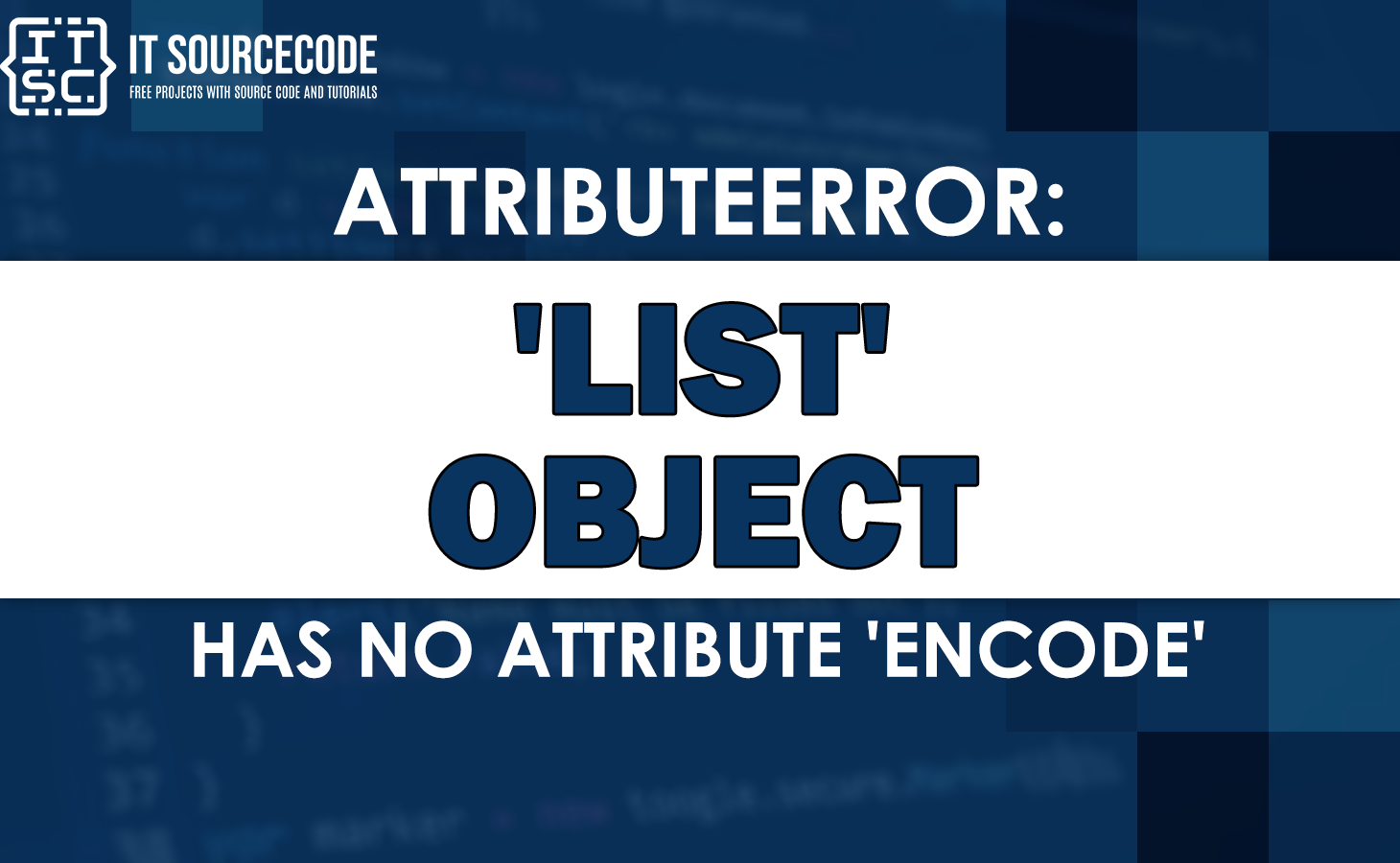The “attributeerror: ‘list’ object has no attribute ‘encode‘” is a common error message that a lot of programmers may probably encounter.
If you’re not familiar with this ‘list’ object has no attribute ‘encode‘ error message, especially if you’re new to it, it might be frustrating and confusing.
But stop worrying about this error, because in this article we’ll explain thoroughly what this error is all about and how you’re going to troubleshoot it.
What is “attributeerror: ‘list’ object has no attribute ‘encode'” error?
The “attributeerror list object has no attribute encode“ indicates that you are trying to call the “encode” method on a list object, but the list object doesn’t have this method.
The reason is that the “encode()” method is a built-in method in Python that is used to convert a string from one encoding to another. In addition to that, it is used to encode a string into a specified format, such as UTF-8.
For that reason, if you try to call the “encode” method on a list object, Python will throw a “‘list’ object has no attribute ‘encode’.” This is because Python doesn’t recognize the “encode()” method for list objects.
Why are the reasons why does this error occur?
Some of the possible reasons are the following:
- If you are trying to use the “encode” method on a list object, instead of a string object.
- If you’ve mistakenly assigned a list to a variable that should contain a string.
- If you are trying to concatenate a list and a string using the “+” operator, which is not allowed to be used.
- There is a syntax error in your code that is causing the “attributeerror: ‘list’ object has no attribute ‘encode’” error message.
Solution for “attributeerror: ‘list’ object has no attribute ‘encode'” error
Here are the following solutions you may use to fix the error:
Solution :1 Use a for loop to convert each element in the list to a string
In this example, we convert the list to a string before encoding. We have a list of strings called sample_list.
Then, we just create an empty list called encoded_list to hold the encoded versions of the strings.
sample_list = ["HI", "WELCOME", "TO", "IT", "SOURCECODE"]
encoded_list = []
for item in sample_list:
encoded_item = item.encode("utf-8")
encoded_list.append(encoded_item)
print(encoded_list)After that iterate over each element of sample_list using a loop. For each string element, we use the encode method with the “utf-8” encoding to convert the string to bytes.
Right after that append the encoded version of the string to the encoded_list. Finally, we print the encoded list.
Output:
[b'HI', b'WELCOME', b'TO', b'IT', b'SOURCECODE']Solution 2: Use a list comprehension to convert each element in the list to a string
sample_list = ['Hi', 'welcome', 'to', 'IT', 'sourcecode']
encoded_list = [ [e.encode('UTF-8') for e in sample_list]]
print(encoded_list)
Output:
[[b'Hi', b'welcome', b'to', b'IT', b'sourcecode']]Solution 3 :Convert the list to a string using the join() method
Example 1:
sample_list = ['WELCOME, ITSOURCECODERS']
sample_string = ''.join(sample_list)
sample_bytes = sample_string.encode()
print(sample_bytes)
Output:
b'WELCOME, ITSOURCECODERS'Example 2:
tmp = [u' test context']
encoded_str = ''.join(tmp).encode('utf-8')
print(encoded_str)
print(dir(tmp))Output:
b' test context' ['__add__', '__class__', '__class_getitem__', '__contains__', '__delattr__', '__delitem__', '__dir__', '__doc__',...
Related Articles for Python Errors
- Attributeerror: ‘str’ object has no attribute ‘append’
- Attributeerror: series object has no attribute strftime
- Attributeerror: ‘nonetype’ object has no attribute ‘split’
Conclusion
This article has already provided different solutions to fix the “attributeerror: ‘list’ object has no attribute ‘encode’“ in Python using various examples.
We are hoping that this article provides you with a sufficient solution; if yes, we would love to hear some thoughts from you.
Thank you very much for reading to the end of this article. Just in case you have more questions or inquiries, feel free to comment, and you can also visit our website for additional information.

